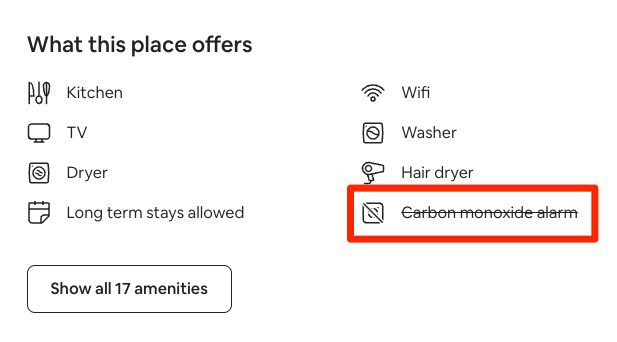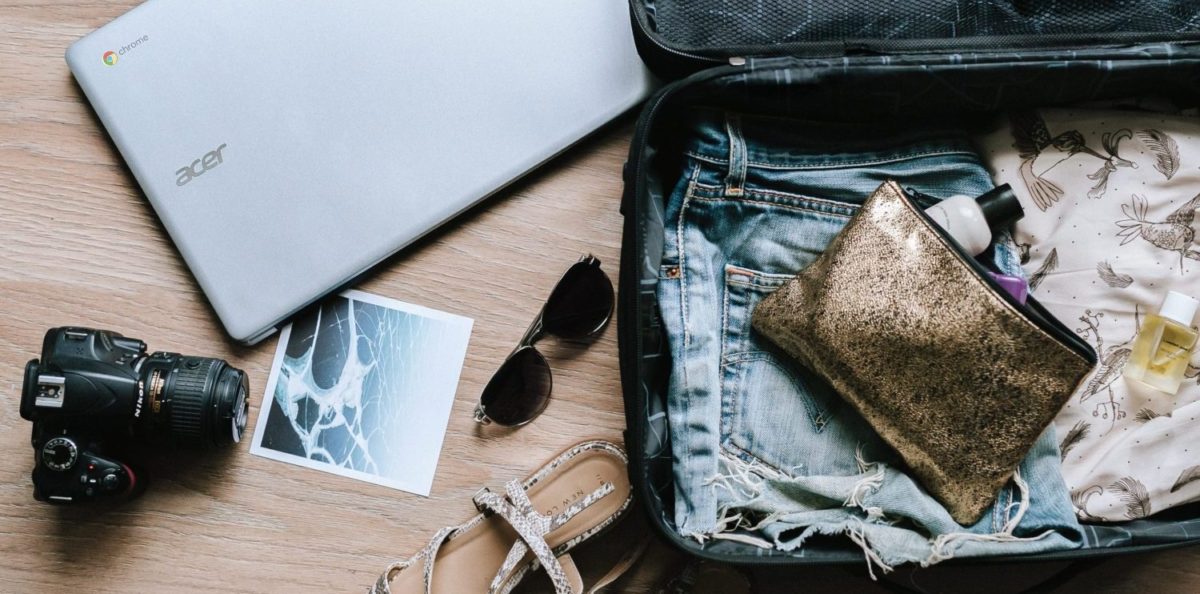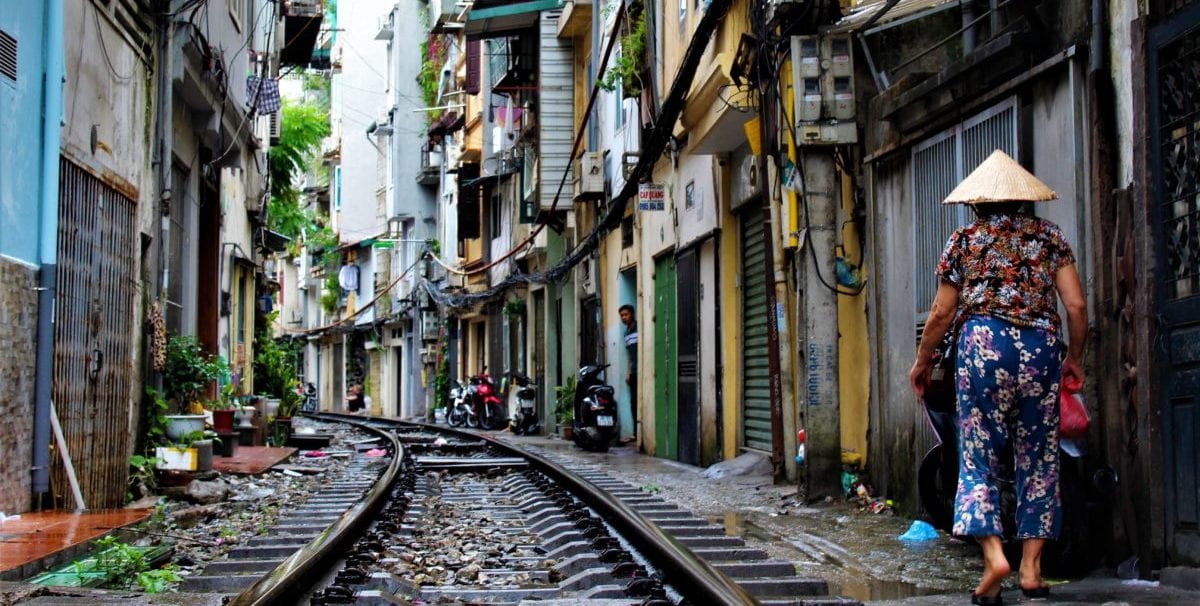Like many travelers, I've spent countless hours poring over hotel and Airbnb listings – determined to plan the perfect vacation. What type of things am I typically looking for? Price, location, amenities, and proximity to public transit are usually where I start.
Noticeably absent from that list is whether or not the listing includes a carbon monoxide detector – until recently, that is.
After a string of carbon monoxide-related travel deaths hit the headlines over the past few years, I began to take notice. So much so that I recently decided to take matters into my own hands and purchase a travel gadget that I never thought I would need: A portable carbon monoxide detector.
While carbon monoxide (CO) poisoning isn't something that should cause travelers to fear or keep anyone from taking a trip, there's an easy option for protecting yourself and loved ones from this potential danger.
Here's what you need to know about the risks of carbon monoxide poisoning – and why you should consider traveling with a portable carbon monoxide detector to protect yourself and your family from accidental exposure.
Read more: 11 Tips to Stay Safe and Be Prepared on Your Travels
What to Know
In recent years we've seen more and more accidental deaths reported as a result of travelers suffering from carbon monoxide poisoning, including one just last month at a resort on Mexico's Baja California peninsula.
While this isn't a regular occurrence or something that should keep travelers at bay, it is entirely preventable – and that's what makes it so scary. Unfortunately, in some countries, there aren't regulations mandating hotels to have a working carbon monoxide detector. In other cases, it's vacation rental platforms and hosts that are prioritizing profits over safety. And until any of that changes, we're likely to see more of these accidents in the future.
So what makes carbon monoxide so dangerous?
It's nearly impossible to detect without the help of a functioning carbon monoxide detector. A malfunctioning furnace, stove, or water heater all create potential carbon monoxide leaks and small spaces such as hotel rooms and rental units (which lack proper ventilation) are at an even greater risk for a leak to become dangerous in a hurry.
The best way to protect yourself from unsafe levels of this dangerous gas is to have a working carbon monoxide detector to alert you if you’re in danger.
And as a best practice, it's a good idea to seek medical treatment as soon as you begin feeling ill while on vacation. It might be easy to write it off as travel-induced stress or even food poisoning, but it's important to listen to your body and realize when something isn't right. If you're staying at a hotel or resort, there may even be a nurse or medical professional on staff that can perform an assessment and provide additional guidance.
Why You Should Have a CO Detector
Even after seeing the occasional carbon monoxide-related travel death make the headlines, it wasn't until I realized that many Airbnbs in Europe and other regions abroad don't come standard with CO detectors that I really took notice.
In planning a recent trip to Europe, I was primarily looking at Airbnbs for our lodging needs since we were traveling with family and would otherwise be booking multiple hotel rooms in order to accommodate everyone.

After looking at many listings in different cities, I started to realize a trend – most rental units don't include a carbon monoxide detector. This was even true for recently remodeled units which seemed quite strange to me. Especially when Airbnb is offering hosts a free CO/Smoke Detector to be shipped directly to their address.
This alone wouldn't have been enough to turn me away from a specific place that I really wanted to stay, but as I mentioned we were traveling with family and that included our young son. There's just something about being a parent that makes you take extra precautions you might not otherwise have considered.
After coming to the realization that I would be hard-pressed to find an Airbnb that I wanted to stay in that also included a carbon monoxide alarm, I started looking for other options. Upon further research it became clear that the simplest solution would be to buy a portable alarm to bring with me for this trip and future travels – so that's exactly what I did.
Related reading:5 Steps to Find the Best Airbnb, No Matter Where You're Heading
Picking Out a CO Detector
There's no shortage of options when it comes to portable carbon monoxide detectors, but there are a few things to consider when narrowing down which one is right for you.
Since I was looking for something that I could bring with me when traveling, it was important to find something small in size. The last thing I wanted was a bulky monitor that would be both heavy and take up valuable real estate in my bag, especially since I try to pack in only a carry-on whenever possible.
I also wanted something battery-operated. When traveling internationally, using outlets will oftentimes require a power converter and while I have a couple of universal converters that I always bring with me, I didn't want to tie one of these up with my new carbon monoxide monitor. Having it run on battery power was a big selling point for me.
What I landed on was a small, battery-operated, monitor from First Alert that cost less than $40 on Amazon. Since the battery life lasts for up to 10 years, I figured I can just keep it in my carry-on and rest assured that it will alert me to any potential exposures. I plan to check the battery and alarm from time to time but outside of that, as long as I leave my carry-on open when on vacation, I shouldn't even need to pull it out of my bag or do any setup in order for it to work.
Thrifty Tip: Check your Amex Offers to see if you can earn any additional Membership Rewards points on your Amazon purchase. Additionally, you may be targeted for extra savings on items sold and shipped by Amazon for using as little as one Amex point at checkout.
Bottom Line
The risk of carbon monoxide or other harmful gases while traveling is extremely low and definitely shouldn't be something that keeps you from traveling or away from specific countries or regions.
Having a portable carbon monoxide detector has provided me with additional peace of mind, knowing that even if the hotel or vacation rental I'm staying in doesn't include a monitor, I'm still protected – and so is my family.





